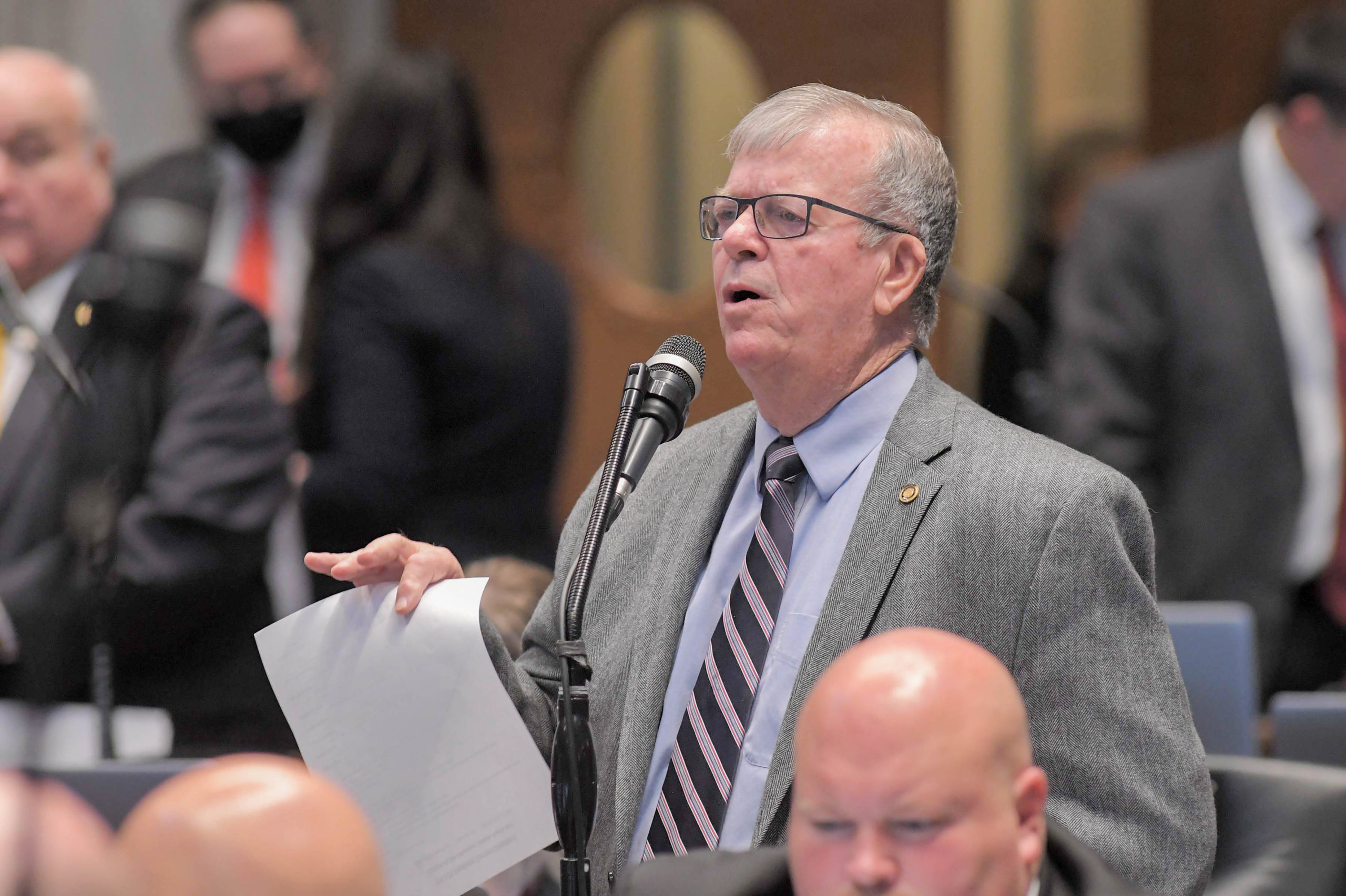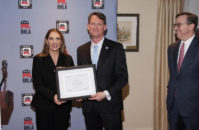After passing through both chambers of the Missouri Legislature, a bill outlining who could inspect agricultural facilities is scheduled to be signed into law this week.
HB 574, sponsored by Rep. Kent Haden, would designate the Missouri departments of Agriculture and Natural Resources, local sheriffs and law enforcement, and other federal and state agencies as the only authorities able to inspect agricultural facilities, including facilities raising livestock. Other entities would be allowed to inspect the property by invitation only. Charter counties would be exempted from the new statute.
Gov. Mike Parson is scheduled to ceremonially sign the bill Thursday in Trenton.
Biosecurity concerns were the driving force behind the bill; untrained people inspecting the premises could bring in disease and decimate a cattle or swine operation, something Haden had seen firsthand.
“I’m a veterinarian by occupation and have worked with various livestock over the years,” Haden told The Missouri Times. “One of the things that got this bill going was animal welfare groups coming in with fake badges and inspecting the grounds. There have also been people doing this with no actual training. These units are very biosecure, and any diseases coming in could devastate a population.”
Haden, who previously served with the Department of Agriculture as the state epidemiologist, said repopulating some swine operations could cost millions if the facility were contaminated. Another concern of his was out-of-state entities attempting to enforce their own regulation on Missouri producers, something he said was occurring in other states.
Missouri’s agriculture groups came out in droves to back his legislation, testifying in favor of it in committee and supporting it over the three years Haden sponsored it.
“This bill was supported by the Missouri Farm Bureau, Missouri Cattlemen’s, Missouri Pork, the Soybean Association — all the major ag players said this was something they needed,” he said. “Our livestock producers right now have some very challenging times they’re in, and the industry felt these protections were needed.”
The legislation is not without its critics: Bob Baker with the Missouri Alliance for Animal Legislation pointed to a provision restricting the use of evidence or witness testimony from unauthorized parties or those observing the conditions from other property in court as one of several concerns of his organization.
“This even works both ways — if there’s a crime being committed against an agricultural operation and somebody witnesses it, they can’t testify to support the farmer,” Baker told The Missouri Times. “It just sends a message to the general public that there’s a lot of bad actors in the ag community, it seems nonsensical in every sense of the word.”
While that provision crossed the finish line with the rest of the bill, another was removed in the Senate. The original version of the bill included cat and dog breeding facilities among the list of protected operations but an amendment excluded them after other groups testified against the bill, pointing to existing regulations on such facilities.
Though he didn’t approve of the amendment, Haden applauded Sen. Jeanie Riddle’s work handling the legislation in the upper chamber.
“I’ve sponsored the bill for three years now, and Sen. Riddle helped it out on the Senate side,” Haden said. “She was extremely helpful in getting it through.”
Parson is signing several pieces of legislation this week; a bill signed Monday will create a statewide Prescription Drug Monitoring Program (PDMP) while a resolution set to be signed Thursday affirms the state’s financial commitment to the East Locust Creek Reservoir Project in the northern part of the state.

Cameron Gerber studied journalism at Lincoln University. Prior to Lincoln, he earned an associate’s degree from State Fair Community College. Cameron is a native of Eldon, Missouri.
Contact Cameron at cameron@themissouritimes.com.

































